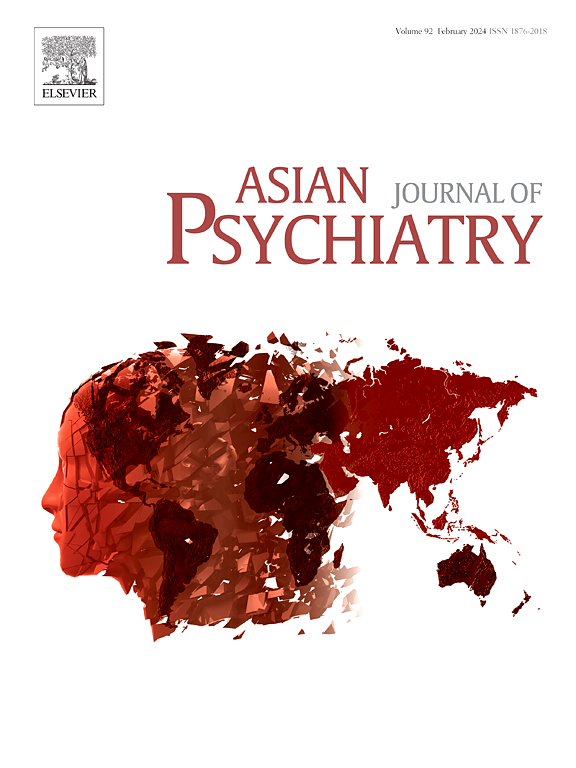Efficacy of a localized caregiver gatekeeper training program for suicide prevention among Chinese adolescents: A pilot study
IF 4.5
4区 医学
Q1 PSYCHIATRY
引用次数: 0
Abstract
Gatekeeper programmes seldom focus on caregivers, even though they are on the frontline of adolescent suicide prevention. In this pilot, caregivers completed the Chinese Life Gatekeeper Training Programme, which covered risk recognition, suicide communication, safety planning and referral skills. Suicide literacy (LOSS), stigma (SOSS), perceived competence and willingness to intervene (WIS) were assessed at baseline, immediately after training and at one month follow-up. Linear mixed-effects models adjusted for sex, socioeconomic status and marital status showed significant post-training gains in suicide literacy (β = 2.833, p <.001) and reductions in stigma (β = −4.50, p <.001); literacy remained higher at follow‑up (β = 2.199, p <.001). Caregivers also successfully identified and referred at‑risk adolescents, and overall training satisfaction was high. These results indicate that a culturally adapted, gatekeeper programme is feasible, acceptable and effective for enhancing key caregiver competencies in suicide prevention among Chinese adolescents. Larger controlled studies with extended follow-up are needed to confirm and extend these findings.
本地化看门人培训项目对中国青少年自杀预防的效果:一项试点研究
看门人规划很少关注照顾者,尽管他们处于青少年自杀预防的第一线。在这个试点项目中,护理人员完成了华人生命看门人培训计划,内容包括风险识别、自杀沟通、安全规划和转介技巧。自杀素养(LOSS)、污名(SOSS)、感知能力和干预意愿(WIS)分别在基线、培训后和一个月随访时进行评估。经性别、社会经济地位和婚姻状况调整后的线性混合效应模型显示,训练后自杀素养显著提高(β = 2.833, p <.001),耻辱感显著降低(β = - 4.50, p <.001);在随访中,识字率仍然较高(β = 2.199, p <.001)。护理人员也成功地识别和转介了有风险的青少年,总体培训满意度很高。这些结果表明,一个具有文化适应性的看门人项目对于提高中国青少年自杀预防中关键照顾者的能力是可行的、可接受的和有效的。需要更大规模的对照研究和长期随访来证实和扩展这些发现。
本文章由计算机程序翻译,如有差异,请以英文原文为准。
求助全文
约1分钟内获得全文
求助全文
来源期刊

Asian journal of psychiatry
Medicine-Psychiatry and Mental Health
CiteScore
12.70
自引率
5.30%
发文量
297
审稿时长
35 days
期刊介绍:
The Asian Journal of Psychiatry serves as a comprehensive resource for psychiatrists, mental health clinicians, neurologists, physicians, mental health students, and policymakers. Its goal is to facilitate the exchange of research findings and clinical practices between Asia and the global community. The journal focuses on psychiatric research relevant to Asia, covering preclinical, clinical, service system, and policy development topics. It also highlights the socio-cultural diversity of the region in relation to mental health.
 求助内容:
求助内容: 应助结果提醒方式:
应助结果提醒方式:


